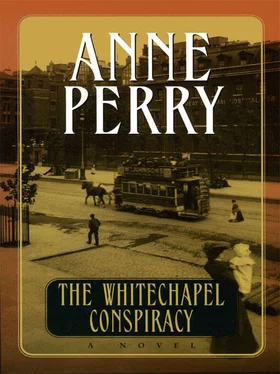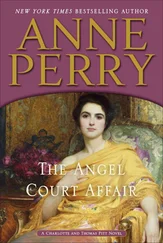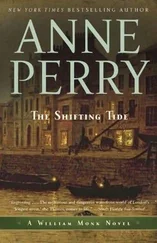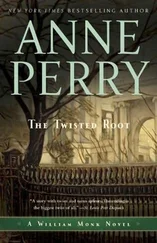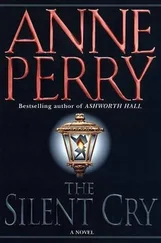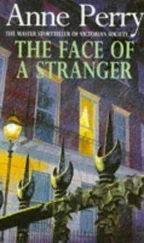“I would have kept novels, especially Jane Austen, in a more accessible place,” Juster remarked with a shrug and a tiny smile.
“Perhaps not if you had already read them,” Pitt argued, too tense to smile back. “And if you were an antiquarian, with particular interest in Homeric Greece, you would not keep most of your books on that subject on the middle shelves but three of them on the top with your novels.”
“No,” Juster agreed. “It seems eccentric, to say the least, and unnecessarily inconvenient. When you had noticed the books, what did you do then?”
“I looked more closely at the body of Mr. Fetters and I asked the butler, who was the one who found him, to tell me exactly what had happened.” Pitt glanced at the judge to see if he would be permitted to repeat it.
The judge nodded.
Reginald Cleave sat tight-lipped, his shoulders hunched, waiting.
“Proceed, if it is relevant,” the judge directed.
“He told me that Mr. Adinett had left through the front door and been gone about ten minutes or so when the bell rang from the library and he went to answer it,” Pitt recounted. “As he approached the door he heard a cry and a thud, and on opening it in some alarm, he saw Mr. Fetters’s ankles and feet protruding from behind the large leather chair in the corner. He went to him immediately to see if he was hurt. I asked him if he had moved the body at all. He said he had not, but in order to reach it he had moved the chair slightly.”
People began to shift restlessly. This all seemed very unimportant. None of it suggested passion or violence, still less murder.
Adinett was staring steadily at Pitt, his brows drawn together, his lips slightly pursed.
Juster hesitated. He knew he was losing the jury. It was in his face. This was about facts, but far more than that it was about belief.
“Slightly, Mr. Pitt?” His voice was sharp. “What do you mean by ‘slightly’?”
“He was specific,” Pitt replied. “He said just as far as the edge of the rug, which was some eleven inches.” He continued without waiting for Juster to ask. “Which meant it would have been at an awkward angle for the light either from the window or the gas bracket, and too close to the wall to be comfortable. It blocked off access to a considerable part of the bookshelves, where books on travel and art were kept, books the butler assured me Mr. Fetters referred to often.” He was looking directly at Juster. “I concluded it was not where the chair was normally kept, and I looked at the rug to see if there were indentations from the feet. There were.” He took a deep breath. “There were also faint scuff marks on the pile and when I looked again at Mr. Fetters’s shoes, I found a piece of fluff caught in a crack in the heel. It seemed to have come from the rug.”
This time there was a murmur from the court. Reginald Gleave’s lips tightened, but it looked more like anger and resolution than fear.
Again Pitt went on without being asked. “Dr. Ibbs had told me he assumed Mr. Fetters leaned too far, overbalanced, and fell off the steps, cracking his head against the shelves on the corner. The force of the blow, with his body weight behind it, not only caused bruising severe enough for him to lose consciousness, but broke his neck, and this was the cause of his death. I considered the possibility that he had been struck a blow which had rendered him insensible, and then the room had been arranged to look as if he had fallen.” There was a sharp rustling in the front row, a hiss of indrawn breath. A woman gasped.
One of the jurors frowned and leaned forward.
Pitt continued without change of expression, but he could feel the tension mounting inside him, his palms sweaty.
“Books he would be likely to read had been pulled out and dropped. The empty spaces left by them had been filled from the top shelf, to explain his use of the ladder. The chair had been pushed close to the corner, and his body placed half concealed by it.”
A look of comic disbelief filled Gleave’s face. He gazed at Pitt, then at Juster, and finally at the jury. As playacting it was superb. Naturally he had long known exactly what Pitt would say.
Juster shrugged. “By whom?” he asked. “Mr. Adinett had already left, and when the butler entered the room there was no one there except Mr. Fetters. Did you disbelieve the butler?”
Pitt chose his words carefully. “I believe he was telling the truth as he knew it.”
Gleave rose to his feet. He was a broad man, heavy shouldered. “My lord, Superintendent Pitt’s thoughts as to the butler’s veracity are irrelevant and out of place. The jury has had the opportunity to hear the butler’s testimony for themselves, and to judge whether he was speaking the truth or not and whether he is an honest and competent person.”
Juster kept his temper with obvious difficulty. There was a high color in his cheeks. “Mr. Pitt, without telling us why, since it seems to annoy my honorable friend so much, will you please tell us what you did after forming this unusual theory of yours?”
“I looked around the room to see if there was anything else that might be of relevance,” Pitt replied, remembering, describing exactly. “I saw a salver on the small table at the far side of the library, and a glass on it half full of port wine. I asked the butler when Mr. Adinett had left the house and he told me. I then asked him to replace the chair where it had been when he came in, and to repeat his actions as exactly as he was able to.” He could see in his mind’s eye the man’s startled expression and his unwillingness. Very obviously he felt it to be disrespectful to the dead. But he had obeyed, self-consciously, his limbs stiff, movement jerking, his face set in determined control of the emotions which raged through him.
“I stood behind the door,” Pitt resumed. “When the butler was obliged to go behind the chair in order to reach Mr. Fetters’s head, I went out of the door and across the hall and in through the doorway opposite.” He stopped, allowing Juster time to react.
Now all the jurors were listening intently. No one moved. No one’s gaze wandered.
“Did the butler call out after you?” Juster also chose his words with exactness.
“Not immediately,” Pitt answered. “I heard his voice from the library speaking in quite normal tones, then he seemed to realize I was not there, and came out to the landing and called me again.”
“So you deduced that he had not seen you leave?”
“Yes. I tried the experiment again, with our roles reversed. Crouched behind the chair, I could not see him leave.”
“I see.” Now there was satisfaction in Juster’s voice and he nodded very slightly. “And why did you go into the room opposite, Mr. Pitt?”
“Because the distance between the library door and the stairs is some twenty feet,” Pitt explained, seeing the stretch of landing again, the bright bars of sunlight from the end window. He could remember the red and yellow of the stained glass. “Had the butler rung the bell for assistance, I would almost certainly have met with someone coming up before I could have made my way out of the house.”
“Assuming you did not want to be seen?” Juster finished for him. “Which had you left rather ostentatiously some fifteen minutes earlier, and then returned through the side door, crept upstairs, and contrived to make murder look like an accident, you would…”
There were gasps and rustles around the room. One woman gave a muffled shriek.
Gleave was on his feet, his face scarlet. “My lord! This is outrageous! I…”
“Yes! Yes!” the judge agreed impatiently. “You know better than that, Mr. Juster. If I allow you such latitude, then I shall be obliged to do the same for Mr. Gleave, and you will not like that!”
Читать дальше
